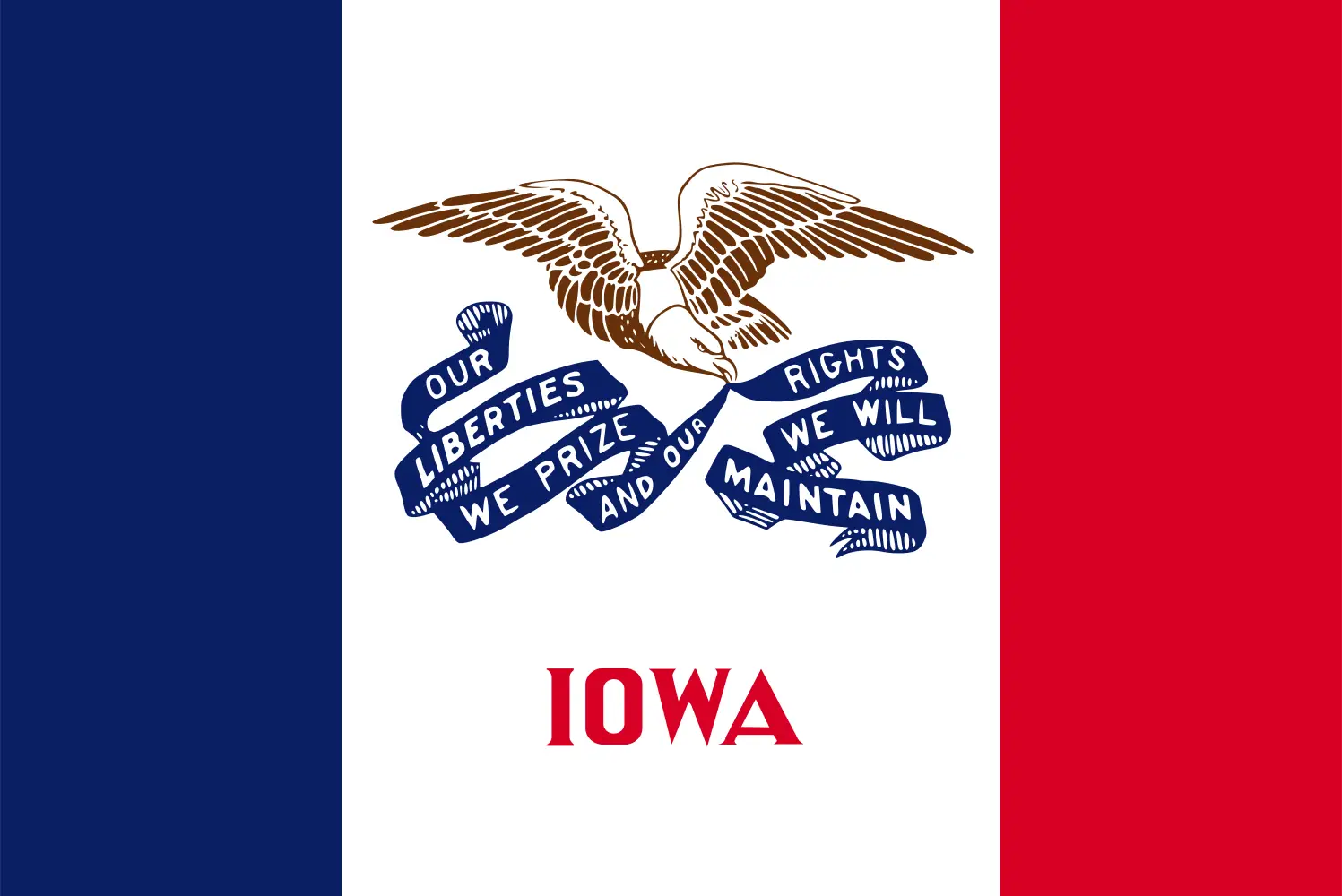Navigating the world of firearms sales can be a complex endeavor. Especially when you’re dealing with the intricacies of state-specific laws and regulations.
In Iowa, selling your gun involves more than just finding a buyer. It requires a thorough understanding of the legal landscape, careful preparation of your firearm, and a strategic approach to the sale.
This guide is designed to help you navigate the process of selling your gun in Iowa. It will provide you with a comprehensive understanding of the legal requirements, the steps involved, and the best practices to ensure a successful transaction.
We’ll delve into the specifics of Iowa gun laws, the role of Federal Firearms License (FFL) holders, and the importance of background checks and documentation. We’ll also guide you through preparing your firearm for sale, choosing the right selling option, and finalizing the sale in a safe, legal, and ethical manner.
Whether you’re a novice gun owner or a seasoned firearms enthusiast, this guide will equip you with the knowledge and insights you need to sell your gun in Iowa confidently and legally.
Stay with us as we explore the ins and outs of selling guns in Iowa. Let’s embark on this journey together.
Understanding Iowa Gun Laws for Selling Firearms
Iowa’s gun laws are a crucial aspect to consider when selling your firearm. These laws govern who can buy or sell firearms, the process of the sale, and the necessary documentation.
In Iowa, private individuals can sell firearms to other private individuals without needing a Federal Firearms License (FFL). However, it’s important to note that this doesn’t absolve you of the responsibility to ensure the legality of the transaction.
You must ensure that the buyer is not prohibited from owning a firearm under state or federal law. This includes individuals convicted of felonies, domestic violence misdemeanors, or those subject to restraining orders.
Legal Requirements for Gun Sellers in Iowa
When selling a gun in Iowa, you must adhere to certain legal requirements. First and foremost, you must verify the buyer’s eligibility to own a firearm.
While Iowa law doesn’t require a background check for private sales, it’s a good practice to request one. This can help you ensure that you’re not selling to a prohibited person.
Additionally, while not mandatory, it’s advisable to create a bill of sale. This document should include details of the transaction, the buyer’s and seller’s information, and a statement of the buyer’s eligibility to own firearms.
The Role of Federal Firearms License (FFL) Holders
Federal Firearms License holders, or FFLs, play a significant role in gun sales. They are authorized by the federal government to engage in the business of manufacturing, importing, or dealing firearms.
While private sales in Iowa don’t require the involvement of an FFL, selling through an FFL can offer certain advantages. These include conducting background checks, handling paperwork, and ensuring the legality of the transaction.
Selling your gun to a licensed dealer like Luxus Capital can simplify the process and provide peace of mind.
Background Checks and Documentation
Background checks are a crucial part of selling firearms responsibly. While not required by Iowa law for private sales, they can help ensure the buyer is legally allowed to own a firearm.
Here are some steps you can take to conduct a background check:
- Request the buyer’s permission to conduct a background check.
- Use a public records search or a private company that offers background check services.
- Check the National Instant Criminal Background Check System (NICS) if you’re an FFL.
In addition to background checks, proper documentation is key. This includes a bill of sale and any records of the transaction. These documents can protect you in case of future legal issues.
Preparing to Sell Your Gun in Iowa
Before you put your firearm up for sale, there are several steps you should take. These steps will not only ensure that you comply with the law, but also help you get the best price for your firearm.
First, you need to assess the value of your firearm. This involves understanding its make, model, condition, and the current market demand. You may also want to consider getting it appraised by a professional.
Finally, prepare your firearm for sale. This includes cleaning and maintaining it, as well as creating a detailed and honest advertisement.
Assessing the Value of Your Firearm
Determining the value of your firearm is a crucial step in the selling process. The value depends on several factors, including the make, model, condition, and rarity of the firearm.
You can start by researching similar firearms for sale online or in local gun stores. This will give you a general idea of the market value.
For a more accurate assessment, consider getting your firearm appraised by a professional. They can provide a detailed evaluation based on their expertise and knowledge of the current market.
Remember, setting a fair and competitive price can help attract potential buyers and expedite the selling process.
Cleaning and Maintenance Tips
A well-maintained firearm is more likely to attract buyers and fetch a higher price. Here are some tips for preparing your firearm for sale:
First, clean your firearm thoroughly. This includes the barrel, action, and exterior surfaces. Use a quality gun cleaning kit and follow the manufacturer’s instructions.
Next, check the firearm for any necessary repairs. If you’re not comfortable doing this yourself, consider taking it to a professional gunsmith.
Finally, store your firearm properly until the sale. This means keeping it in a dry, cool place and using a gun safe if possible.
Creating a Detailed and Honest Advertisement
When advertising your firearm for sale, honesty is key. Provide a detailed description of the firearm, including its make, model, condition, and any modifications or repairs.
Include clear, high-quality photos from different angles. This allows potential buyers to get a good look at the firearm before deciding to purchase.
Finally, be upfront about the price and any terms of the sale. This includes whether you’re willing to negotiate the price, the method of payment you accept, and any other relevant information.
Choosing the Right Selling Option
Once your firearm is ready for sale, you need to decide how you want to sell it. There are several options available, each with its own pros and cons.
You can sell your firearm to a licensed dealer, conduct a private sale, or use online platforms. You can also consider selling at gun shows. The best option depends on your specific circumstances and preferences.
Consider factors such as the ease of transaction, legal requirements, potential price, and your comfort level with the buyer. It’s important to choose a method that ensures a safe, legal, and successful sale.
Selling to a Licensed Dealer like Luxus Capital
Selling your firearm to a licensed dealer like Luxus Capital can be a convenient and secure option. Licensed dealers are knowledgeable about the legal requirements and can handle the paperwork for you.
They also have a wide network of potential buyers, which can help you sell your firearm quickly. Plus, they can offer competitive prices, especially for rare or high-quality firearms.
However, keep in mind that dealers need to make a profit. So, the price they offer might be lower than what you could get in a private sale.
Private Sales: Pros, Cons, and Best Practices
Private sales can potentially fetch a higher price, as you’re selling directly to the buyer. However, they come with more responsibilities and risks.
You need to ensure the buyer is legally allowed to own a firearm. This usually involves conducting a background check. You also need to handle the paperwork and record-keeping.
Safety is another concern. Always meet in a public place and bring a friend if possible. Never disclose personal information like your home address.
Finally, be aware of scams. Only accept secure forms of payment and avoid buyers who seem suspicious or pushy.
Online Sales and Gun Shows in Iowa
Online platforms and gun shows offer another avenue for selling your firearm. They can reach a wide audience and offer the convenience of selling from home.
However, they also come with challenges. Online sales require careful packaging and shipping. You also need to comply with the platform’s rules and federal laws.
Gun shows, on the other hand, allow you to interact with buyers in person. But they can be hectic and require a booth fee. Plus, Iowa has specific laws regulating gun sales at these events.
Finalizing the Sale: Safety, Legal Compliance, and Ethics
Once you’ve found a buyer and agreed on a price, it’s time to finalize the sale. This involves meeting the buyer, transferring ownership, and keeping records of the transaction.
Safety should be your top priority. Always meet in a public place and bring a friend if possible. Be cautious of buyers who seem suspicious or pushy.
Legal compliance is also crucial. Make sure you’ve followed all the necessary steps to ensure the sale is legal. This includes conducting a background check, verifying the buyer’s eligibility, and completing the required paperwork.
Finally, consider the ethical aspects. You’re selling a firearm, which can be used to harm others. Make sure you’re comfortable with the buyer and their intentions for the firearm.
Meeting Potential Buyers and Transfer of Ownership
Meeting the buyer is an important step in the selling process. It’s a chance to verify their identity, discuss the firearm’s condition, and finalize the sale.
Choose a public place for the meeting, such as a police station or a gun store. This ensures safety and allows the buyer to inspect the firearm.
During the meeting, you should transfer ownership of the firearm. This usually involves signing a bill of sale and handing over the firearm. Make sure the buyer understands the firearm’s operation and safety features.
After the transfer, provide the buyer with a receipt. This should include the date, price, firearm details, and both parties’ contact information. It serves as proof of the transaction and can be useful for future reference.
Record Keeping and After-Sale Considerations
Keeping records of the sale is crucial for legal and practical reasons. It helps you prove that you sold the firearm and transferred ownership legally.
The records should include a copy of the bill of sale, the buyer’s information, and any other relevant documents. Store these records in a safe place for at least five years, as recommended by the Bureau of Alcohol, Tobacco, Firearms and Explosives (ATF).
After the sale, you might need to notify the local law enforcement or the ATF, depending on your state’s laws. Also, consider informing your insurance company about the sale, especially if the firearm was included in your home insurance policy.
Conclusion and Additional Resources
Selling a firearm in Iowa involves understanding the state’s gun laws, preparing your firearm for sale, choosing the right selling option, and finalizing the sale responsibly. It’s a process that requires diligence, patience, and a commitment to safety and legality.
For additional resources, consider consulting with a legal expert or a licensed dealer like Luxus Capital. They can provide valuable insights and guidance. Also, stay updated on changes to Iowa gun laws by visiting the official state website or subscribing to newsletters from reputable firearms organizations. Remember, knowledge is power when it comes to selling firearms responsibly and legally.









